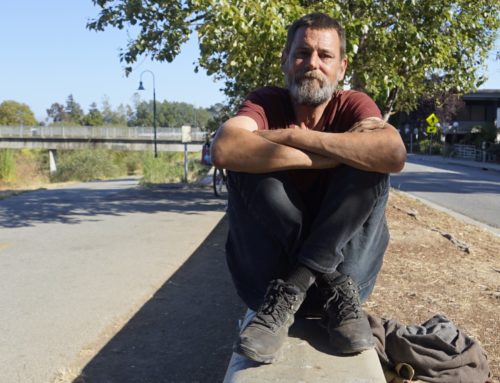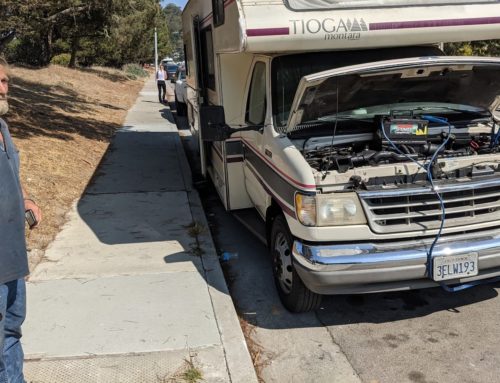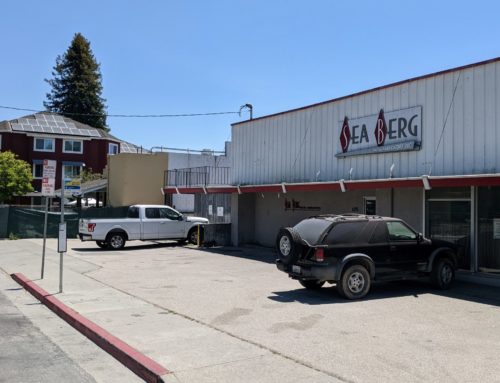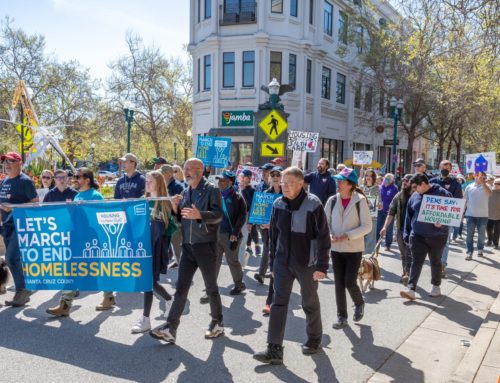Santa Cruz Local’s Jerimiah Oetting answers a listener’s question on what UC Santa Cruz is doing to help with COVID testing. This is the second installment of ‘Santa Cruz Local Answers,’ where Jerimiah tackles your coronavirus-related questions. Submit your questions to santacruzlocal.org/coronavirus , by email or voice memo to [email protected], or by voice mail to 831-222-0460.
TRANSCRIPT
Editor’s note: Transcripts usually are only available to Santa Cruz Local members. We offer coronavirus-related episode transcripts free as a public service.
Can we count on you as a supporter of public service journalism?
JERIMIAH OETTING: I’m Jerimiah Oetting. This is Santa Cruz Local Answers.
Today’s question is from Santa Cruz Local member John Hillstrom.
JOHN HILLSTROM: Hey guys, I am wondering about testing here in Santa Cruz. I’ve heard it’s taking up to eight days to get back tests. So I’m just wondering what’s the status of testing in Santa Cruz, and could the university possibly help.
JO: Thanks John. It’s an important question.
Dr. David Ghilarducci, Santa Cruz County’s deputy health officer, said that our shelter-in-place order is a direct result of not having testing capacity. He spoke at the Santa Cruz Local Town Hall last week.
DR. DAVID GHILARDUCCI: Well, I’ll tell you what. It stops when we have testing. And the shelter in place is, as I said earlier, is a blunt tool for the – that’s a complete reflection of the lack of testing.
So, you’ve seen other countries like South Korea have been able to relax their shelter-in-place and isolation restrictions because they have a good sense of what’s happening. So, we’re in the phase right now where the only tool we have is to do what we’re doing.
And fortunately, it’s working but it does have side effects. Economic side effects and social side effects.
JO: Well, I can report that UC Santa Cruz scientists are working to open testing facilities on campus.
Since testing started, the county has received just under 3,000 COVID test results.
That’s nowhere near the level needed to lift the shelter in place.
County healthy officials recently announced that three testing facilities will open soon: at Dominican Hospital, Dignity Health and the county’s Emeline Avenue clinic in Santa Cruz.
With the facilities at UCSC, scientists hope to run hundreds of tests a day. That will be a major improvement for the county.
Here’s Marm Kilpatrick. He’s one of a handful of professors leading the project. He studies infectious diseases.
MARM KILPATRICK: Until just recently, they couldn’t even do the widespread screening of healthcare professionals. Thankfully, some of the local capacity that they’ve been able to build with buying some of the new commercial machines has enabled that part. By UCSC providing additional testing capacity we’ll be able to expand both the professions that will be able to be tested as well as the large fraction of people that basically have mild symptoms when they get infected with SARS coronavirus-2.
JO: UCSC already has some of the basic lab equipment. That includes the PCR machines needed to detect the genetic information of the virus. This is still the main method of testing around the world.
But UCSC also purchased new equipment to make the process safer, faster and more reliable.
Jeremy Sanford, a professor in molecular biology at UCSC, also leads the project. He geeked out to me about the new “liquid handler” robot. It will help automate the testing.
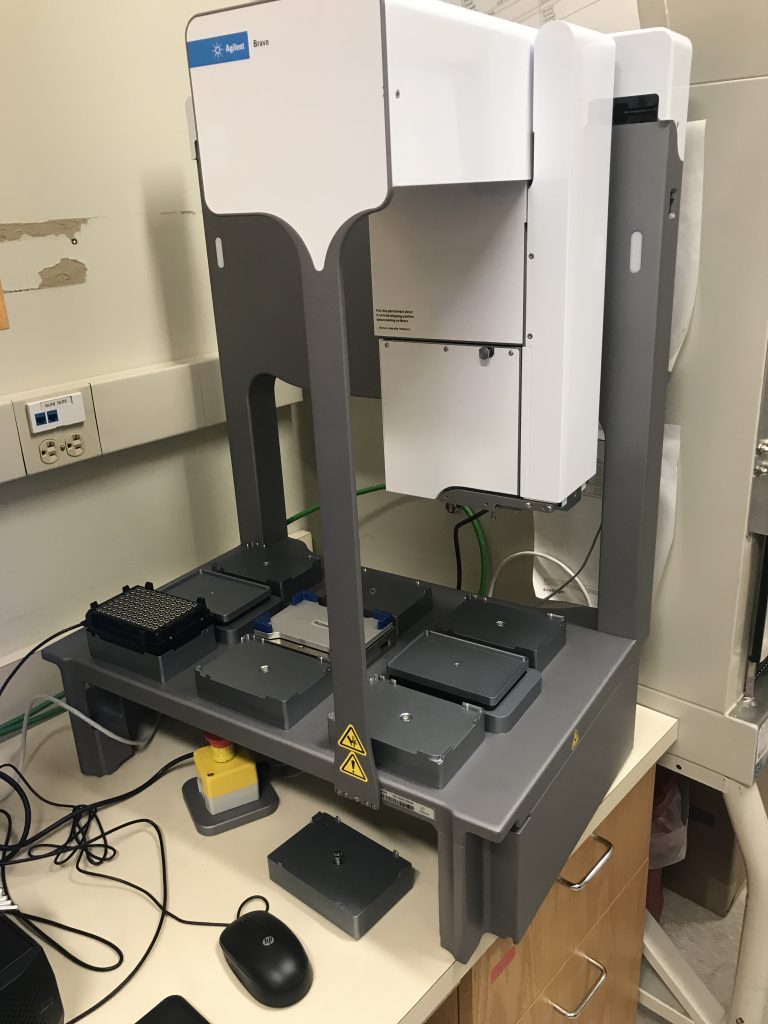
JEREMY SANFORD: Yeah, that’s one of the most exciting bits. It’s a small, sort of 2 foot by 2 foot by 2 foot box that is essentially a robotic arm. It doesn’t make mistakes, as long as you program it the right way.
And so it’s really, really fast, really precise.
JO: Project leaders hope testing will come online as early as May. But even if that happens, it’s likely that widespread testing is still a ways off. At first, UCSC’s testing will be reserved for those who are very sick, for medical workers, and for people who are particularly vulnerable, like those with pre-existing conditions.
All tests will still need to be prescribed by a doctor.
JEREMY SANFORD: You know, we can’t just go out and like just randomly swab people and start testing them. Because if they don’t have a health care provider, you wind up in a situation where we overwhelm our county health departments and things like that.
JO: Before testing on campus can get started, the labs need a special certification to diagnose diseases. Campus leaders are hoping to submit their paperwork this week. Then it will be the hands of the U.S. Food and Drug Administration.
Here’s Marm Kilpatrick again.
MARM KILPATRICK: The uncertainty now rests on how long FDA will take to basically approve or not approve that application.
Normally, it’s at least a six-month process, but we don’t know whether that’s been shrunk to one month or to one week or even days.
JO: A campus spokesperson told me that UCSC has already spent about $250,000 on new machinery for the testing lab.
That money came from central campus funds.
Once this crisis is over, the new machinery will be useful for research beyond testing for COVID-19.
That’s it for this episode of Santa Cruz Local Answers. If you have a question you’d like answered, feel free to submit it at santacruzlocal.org/coronavirus.
If you want your voice featured in our podcast, you can send me a voice memo at [email protected]. Or, feel free to leave a voice mail at 831-222-0460.
I’m Jerimiah and thanks for listening to Santa Cruz Local. Stay healthy out there.
Editor’s note: This story has been corrected. The new machinery can be used after the COVID crisis, but the diagnostic certification will only be used for COVID testing.

